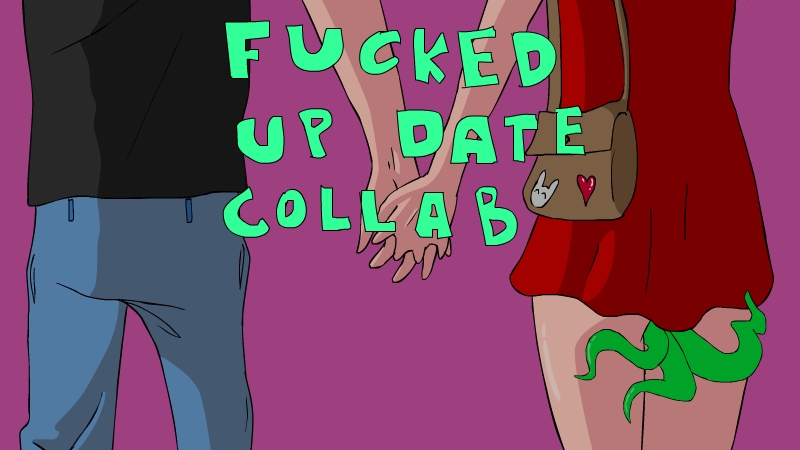Since they know creating new laws (SOPA/CISPA/etc) wont help, they're twisting existing laws.
Clever, eh? Like an unstable virus that mutates every time a countermeasure is discovered.
-
On Tuesday, the federal appeals court in Washington, D.C., trashed (PDF) the Federal Communications Commission’s “Open Internet” rules.
Translation: The judges just stabbed Net Neutrality in the eye.
Less-wonky translation: Verizon, AT&T, Time Warner Cable or whoever provides your Internet connection can now block, slow or otherwise mess with websites, apps and other services.
And the FCC—the agency that’s supposed to protect Internet users and oversee communications networks—can’t do anything about it.
Well, they can do one thing—which I’ll explain in a second.
But first …
What did the court actually say?
Let’s be clear: The court didn’t rule against Net Neutrality — that fundamental principle which ensures you can go wherever, browse whenever, and download whatever you want when you go online.
The court just invalidated the way the FCC tried to make Net Neutrality rules in a 2010 order. The judges rejected the legal framework used by the FCC and said the agency currently lacks the authority to implement and to enforce these rules.
Indeed, the court specifically stated that its “task as a reviewing court is not to assess the wisdom of the Open Internet Order regulations, but rather to determine whether the Commission has demonstrated that the regulations fall within the scope of its statutory grant of authority.”
So how did we get into this mess?
The reason the FCC’s authority to regulate broadband didn’t pass muster in court is because, under the Bush administration, the FCC abdicated its authority. At the urging of phone and cable lobbyists, the agency changed the way it treated broadband under the law. That was a huge mistake.
“We can still have Net Neutrality in America—but the FCC must reclaim its legal authority immediately.”
And so when the FCC tried to stop Comcast from blocking lawful file-sharing back in 2008, Comcast sued them claiming the agency didn’t have the authority. And Comcast won.
And when the FCC tried to implement watered-down but not completely worthless Net Neutrality rules in 2010, Verizon sued claiming they still lacked the authority. And Verizon won yesterday.
The silver lining is that there’s nothing in the court’s decision that prevents the FCC from reversing its earlier misguided decisions and treating broadband under the law as the “telecommunications service” it so obviously is.
Well, there’s nothing stopping the FCC but a lack of political will and the lobbying might of the telecom industry (which spends more to influence Washington than anybody outside the drug companies).
But both Tuesday’s decision and a prior decision by the Supreme Court in the 2005 Brand X case clearly establish that the FCC must “reclassify broadband” if it wishes to have any lasting ability to prohibit ISPs from blocking websites or discriminating against apps.
We can still have Net Neutrality in America—but the FCC must reclaim its legal authority immediately.
What if the FCC doesn’t act?
If you think cable TV sucks, just wait. ISPs like Time Warner Cable, AT&T and Verizon want to take the worst aspects of the cable system and impose them on the Internet.
Expect Internet blackouts that extend far beyond the popular content vendors, as smaller websites are caught in the crossfire. Tweets, emails and texts will be mysteriously delayed or dropped. Videos will load slowly, if at all. Websites will work fine one minute and freeze the next.
Your ISP will claim it’s not their fault, and you’ll have no idea who is to blame. You also won’t be able to vote with your feet or your wallet, because there’s no competition in broadband, and all the big ISPs will be playing this game.
You see, ISPs hate the idea that they’re nothing more than providers of “dumb pipes.” Now that they are free from any legal restraints, the ISPs will try to get Internet companies to pay extra tolls—and threaten to block or delay them if they don’t. Exclusive deals could become the norm, with AT&T exclusively bringing you Netflix, while Time Warner Cable is the sole source for YouTube.
Is that all?
Net Neutrality lowers the barriers of entry for entrepreneurs, startups and small businesses by ensuring the Web is a fair and level playing field. It’s because of Net Neutrality that small businesses and innovators have been able to thrive on the Internet. They use the Internet to reach new customers and showcase their goods, applications and services.
Without Net Neutrality, the next Google being built in a garage somewhere will never get off the ground.
And it gets worse. The court’s decision and the FCC’s bungling have put more in jeopardy than just Net Neutrality.
For example, the ruling threatens FCC efforts to modernize the universal service program to ensure that rural and low-income users are able to access affordable broadband services. We could see the progress made toward closing the digital divide come to a full stop.
And if privacy is your main concern, this ruling frees ISPs to monitor everything you do and say online—and sell that information to the highest bidder. ISPs have something that companies like Google and Facebook don’t: direct control over your connections to the Internet and the devices you use to connect to it.
So if this decision stands, it won’t be long before your ISP requires you to connect via their list of approved devices and then uses those devices to literally watch you. Forget about encryption—your ISP could require the key as condition of using its network.
Is there any hope?
Yes. The one thing, that aforementioned silver lining, is that the FCC still has the power and ability to turn this all around.
New FCC Chairman Tom Wheeler recently stated that the FCC must be able to protect broadband users and preserve the Internet’s fundamental open architecture. Now he has no other choice but to reassert the FCC’s clear authority over our nation’s communications infrastructure.
Will he do it? Not without a lot of political pressure—enough political pressure to counteract the onslaught of industry lobbyists (and hired guns and sketchy front groups) about to descend on his office.
But we’ve seen throughout the fight over Net Neutrality, the massive mobilization to stop the SOPA/PIPA Web censorship bills, and the public outcry against unchecked NSA surveillance that when millions of Internet users speak out, Washington will pay attention... maybe.
So is this the end of the Internet? Only if we let it be.
--------------------
The way I see it, here's what I think went down.
Verizon: We should have the right to throttle internet! Its OUR service!
Judge: No way, the law sa-
Verizon: Do it naow or else I'll leak proof that you whack off to badly-drawn cartoon girls!
Judge: .... okay. ;_;

